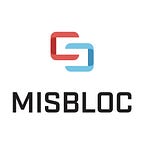An Introduction to Smart Contracts
MISBLOC (Medical Information Service with Blockchain) is a medical service ecosystem, which is based on blockchain technology. MISBLOC offers a sustainable and efficient medical service ecosystem, by providing reliable medical information to patients, medical institutions, and public institutions in the Big Data era.
Welcome back!
Today we’re going to take a look at smart contracts. If you’ve heard this term before and never quite understood it, we’re happy to explain it today! We’ll also give a few examples of how these smart contracts are used in conjunction with blockchain technology. However, you should know that we aren’t covering all of the ways smart contracts are being used. This new technology is always changing and people are finding new ways to use it. With that in mind, let’s take a look at smart contracts!
What are Smart Contracts?
Smart contracts are digital electronic contracts that allow individuals to sign P2P contracts without involving a third party. They were first devised by Nick Szabo in 1994. At that time, Szabo said that smart contracts were similar to vending machines. He defined them as computerized transaction agreements that allowed the contract to be executed through code. This is because, just like a vending machine automatically gives you a snack if you put in the correct amount of money, smart contracts are automatically executed when set conditions are met. This means that two strangers can make a deal through the blockchain without knowing or trusting each other. On the other hand, you can be sure that the contract will not run unless those certain conditions are met. Smart contracts can significantly lower operating costs because they do not require intermediaries.
Smart Contracts Use Cases
Finance
Bitcoin started out as simply a means of payment and focused on the ability to transfer and convert funds without intermediaries. Later, Ethereum used smart contracts to expand the scope of its business, including the transfer of funds between stakeholders involved in transactions. So, if you use a smart contract platform, an automatic P2P contract system can be used between parties who agree to the smart contract. For example, in the insurance industry, a smart contract is created so that compensation is automatically paid when certain conditions are satisfied.
Copyright
Blockchain-based smart contracts have a myriad of uses. These include managing ownership of works, transparently sharing transaction information related to the purchase of works, protecting intellectual property rights, and fundamentally eliminating the illegal copying of works. In addition, if intellectual property rights are registered in a smart contract and payments are received in real-time, we can remove unnecessary intermediaries. Additionally, trading processes will be shortened and even more efficient transactions will be enabled.
Logistics & Distribution
Another great benefit of storing intact data on the blockchain is that hacking is not possible. Thanks to this, blockchain technology can be applied to the field of logistics and distribution.
The logistics process varies depending on the producers, suppliers, operators, distributors, regulators, and consumers involved in the distribution of various products. Distribution information and tracking history can be safely entered on a blockchain, which allows users to quickly look at and follow the process of distribution.
A prime example is IBM in the United States. They currently operate Food Trust, a blockchain-based food origin inquiry service. Before this service was implemented, if contamination was found in the food being served, it took more than six days to determine which farm it was produced at, leading to the disposal of all foods. With the introduction of blockchain technology, however, that timeframe has been shortened to 2.2 seconds!
Sharing Economy
Blockchain-based smart contracts may be key to expanding the limitations of and resolving the trust problems found in the sharing economy. Smart contracts can be used in the sharing economy as many participants are not represented by a third party and want to solve transactions directly.
For example, if the terms of the contract are set to share a house (Airbnb) or a car (Uber, Lyft), and the contract is executed so that money and services are provided accordingly, transactions between users can be completed without an intermediary. GM and Lyft, a ride-sharing service in the U.S., created an app to register vehicles based on the Internet of Things (IoT). Through smart contracts, users can automate the tracking of vehicle liens, transfers, or repossessions.
We hope these examples of a few of the many uses of smart contracts were helpful for you. Keep in mind, this is just the tip of the iceberg! We have no idea all the ways we’ll be able to use smart contracts in the future. However, these are the main ways they’re currently being used. Being familiar with smart contracts will be very helpful for you on your blockchain journey. See you next time!
